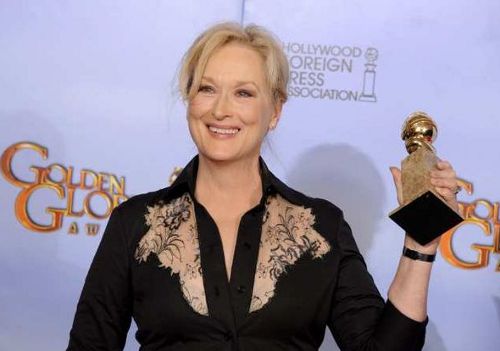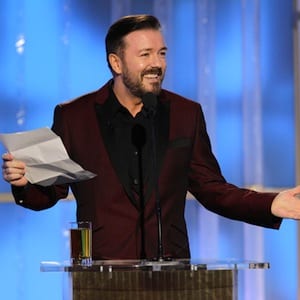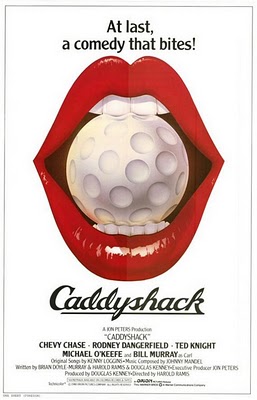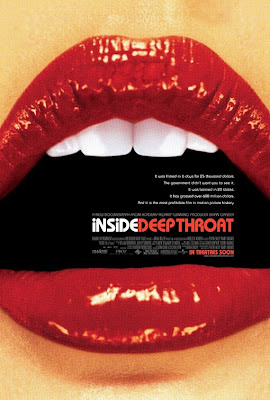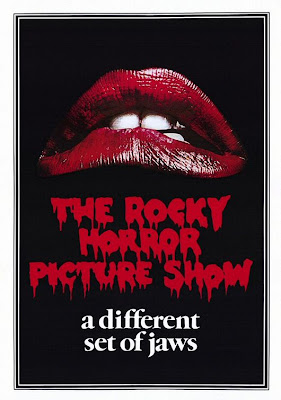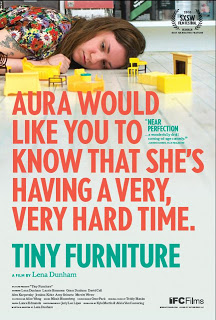I’m still in the process of getting my shit together in 2012, so here’s a review I wrote in January 2011. Basically, I loved Tiny Furniture. Check it out if you can — it’s streaming on Netflix.
The film follows Aura (played by writer/director Lena Dunham), a 20-something self-described misanthrope who, after graduating from a film program at a small liberal arts school in Ohio, moves back to New York City to live with her famous-artist mother, Siri (played by Dunham’s real-life mother Laurie Simmons) and her budding-genius sister, highschooler Nadine (played by Dunham’s real-life sister Grace Dunham). The film wants to show that Aura is, in fact, Having a Very, Very Hard Time, as the tagline reveals, and it puts her through the typical hell that’s common in the heterosexual coming-of-age stories of early twenties womanhood: the struggle to find a reasonably paying job, a desire to make that college degree mean something, and, of course, a few random hookups with emotionally unavailable men.
When Aura arrives home from college, she’s immediately confronted with her mother photographing her younger sister among a setup of, literally, tiny furniture. And, while the first indication of sibling rivalry appears, it already seems more refreshing and complicated than the traditional cliched portrayal of sister-hate and woman-on-woman divisiveness. The women converse with one another as if Aura hadn’t been in Ohio for four years; in fact, the casualness of their interaction–her mother barely looking up from her photography, her sister making sarcastic comparisons about her slender legs versus Aura’s heavier frame–suggests a comfort with one another that transcends their almost performed familial coldness.
Perhaps most intriguingly, the on-screen relationships feel so authentic that the unmentioned absent father is hardly noticeable. Who cares, after all? Women rock the screen, and, unlike a couple of recent woman-centric films (The Kids Are All Right, Winter’s Bone–both arguably feminist) it has nothing to do with a need to compensate for the failings of the men in their lives.
Almost immediately when Aura moves back to New York, she meets up with her childhood friend Charlotte (played by Jemima Kirke) at a party. Charlotte is portrayed as a spoiled, drama-craving brat, but Aura clings to her, at one point even referring to Charlotte as her best friend. (Her mother later says sarcastically in response, “After two weeks?”) They hang out in Charlotte’s apartment, getting high together and talking about art, men, joblessness, addiction, their parents–and they flatter each other; the audience is never encouraged to view these women as rivals. The point of their friendship is to illustrate the absolute aloneness of being an aimless twenty-something and not knowing what the hell to do in life. In several hilarious scenes, Charlotte begs Aura not to leave, once going as far as to roll around on her bed saying, “Please stay,” which the audience is meant to find both endearing and pathetic.
And while the relationship between Charlotte and Aura works mainly because of their shared loneliness and need to connect, the onscreen relationship between the two sisters thoughtfully investigates the obstacles inherent in familial relationships. In fact, it didn’t surprise me at all when I discovered that they’re actually real-life sisters because their sibling rapport feels incredibly authentic. While Aura drinks bottle after bottle of her mother’s wine with her friends, Nadine runs on the treadmill, does crunches while reading a book, writes award-winning poetry, and teases Aura about her directionless existence. But the back-and-forth nitpicking between them is perfectly juxtaposed against scenes exhibiting such tenderness as can only occur in close relationships.
One of my favorite scenes in the movie involves Nadine throwing a party while her mother is out, leaving Aura to supervise things. Of course, the party gets out of hand–we’re dealing with a slew of highschoolers railing against Aura-as-Authority-Figure (because, let’s face it, if Aura is anything, Authority Figure isn’t on the list)–and Aura starts to have a panic attack. She does the only thing she can think to do, call Charlotte to come over and help her get the party under control. Which is hilarious. Because Charlotte is more of a disaster than Aura is. So, it isn’t surprising at all when Charlotte starts giving lap dances and Aura starts walking around the party in her underwear.
The screaming match that ensues between Aura and Nadine could’ve been taken from a direct transcript of a real-life sibling fight. I cringed at the truthfulness of Nadine’s accusations as she criticized Aura for craving the attention of high school boys. (Those boys, however, reciprocated by making fun of Aura and dissing her body.) And when Nadine starts smacking Aura with a spatula and storms off, the audience feels sympathy for both sisters; neither is the villain in this film, and Dunham’s navigation of that terrain seems effortless from beginning to end. I won’t spoil the brief make-up scene between Aura and Nadine because the film is worth watching for that moment alone.
Aura spends much of the film, when she isn’t fighting with her sister, thinking of herself as somewhat of an artist/filmmaker, as evidenced by her YouTube videos (where she usually wears only her underwear or a bathing suit). Since Aura isn’t traditionally beautiful, and isn’t a size two like most of the half-naked women we’re used to seeing onscreen, at first it’s almost shocking to watch her walk around barely clothed throughout the film (which further illustrates the level of comfort and intimacy she feels with her mother and sister). But Dunham doesn’t include those scenes merely for shock value. The comments left on her YouTube videos consistently make fun of her weight and her looks. She reads the insulting feedback aloud to Charlotte, and they both try to blow it off, but not without Aura remarking on how difficult it is to put that negativity out of her mind.
For anyone who’s ever browsed the comments on YouTube videos, it’s impossible not to notice the disgusting misogyny and homophobia that plague them. Not only does Dunham subtly comment on that, but she also manages to reinforce the importance of supportive women friendships as a way to help combat the barrage of bullshit women deal with daily, especially when it concerns unattainable beauty ideals. It’s interesting to note, too, that Charlotte is traditionally attractive, and yet their friendship never digresses into any sort of competition, least of all one that involves some stereotypical competition over men.
The film doesn’t completely shy away from the subject of men, though, and the two men Aura meets both basically suck. One spends the first half of the movie mooching off Aura–and she lets him–staying in her house, eating her food, drinking her mother’s wine, but when she tries to take their “friendship” to the next level, he refuses. For Aura to attempt to hook up with such a caricature of a loser further drives home her loneliness and desire for connection. With anyone. So it isn’t surprising either when she goes after the chef she works with, who likes “Asian tentacle rape” pornography–whatever the hell that is–and exploits Aura’s obvious crush on him to get her to give him pills (even though he has a girlfriend).
Watching the film, one can’t avoid thinking, “C’mon, Aura, you know better than this.” But the material is so impossible not to relate to–who hasn’t lusted after the entirely wrong person, and known it?–that one can’t fault her for putting herself through it.
Those interactions with men accompanied by Aura’s reading aloud of her mother’s diary (written during her twenties) give further insight into the relationship Aura has with her mother. In many ways, regardless of how often the two women clash, Aura admires her. She’s a successful artist who’s clearly independent. She’s rich. She has no apparent need for a man in her life. Yet her diary reveals many of her obsessions in her twenties: with body image–she constantly journaled her food choices, with men and their inadequacies, and particularly with feeling like she wasn’t living up to her potential as an artist.
The final scene of the film, with Aura curled up with her mother in her mother’s bed, discussing the diary, openly discussing Aura’s horrid sexual encounter from earlier in the evening (completely absent of judgment from her mother–her only concern is that Aura practices safe sex), discussing Aura’s own fears of failure, which her mother squashes with, “Oh, you’ll be much more successful than I am,” feels so heart-wrenchingly honest it’s almost difficult to watch. And the ending, which features a literal ticking clock that could’ve felt contrived and artificial, totally works. It isn’t that the two women desire to stop time; they just don’t want the obvious reminder of its passing.
As Aura struggles with all these issues, reading her mother’s diary (and sharing it with the audience) serves to remind us that even though coming-of-age ain’t fun, particularly for young women navigating the patriarchy, it’s still possible to come out on the other end fairly unscathed.





